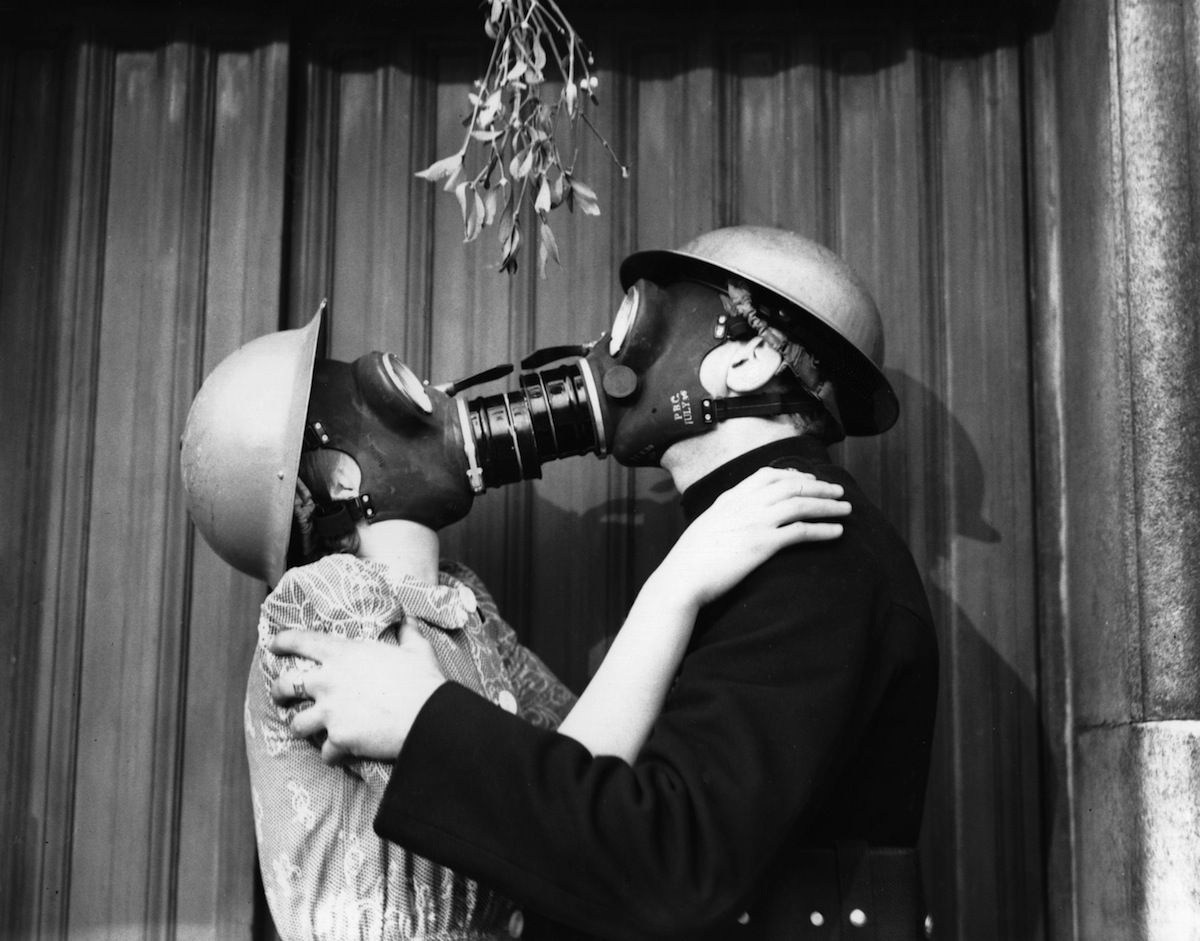
Year after year, preparing for Christmas is largely the same: people send cards, attend holiday events and sort out a big, Christmas Day meal.
Surprisingly, the same was true for Britons 74 years ago, when the country was under heavy fire from German bombs. By December 1940, the U.K. was in the middle of the Blitz, as a series of devastating air raids from German forces destroyed huge sections of British cities, including London, Birmingham and Bristol, and claimed tens of thousands of lives.
But although the country was under heavy fire, people across Britain did their best to carry on regardless as far as Christmas was concerned — in a wartime festive season that came to be known as “Blitzmas.”
TIME reported on Dec. 30, 1940, that despite the bombs, “life in the big London air-raid shelters, where over 1,000,000 people regularly spend the night, had become so standardized that many shelter Christmas parties were elaborate communal affairs with mass harmony singing, skits and dancing.”
Other British holiday traditions were observed, although often with an understandable twist. King George VI and his wife Queen Elizabeth still sent out their annual Christmas card, though it included a photograph of them “standing in front of the bombed portion of Buckingham Palace,” TIME reported.
The rest of the royal family’s celebration was largely routine, as they were known to keep their holiday simple. Yet the royals were forced to spend the holiday at a location “kept rigidly secret lest Nazi airmen bomb George VI while the King was reading his scheduled Christmas broadcast.”
Not that the war didn’t interfere with some of the cherished traditions of the British Christmas. Streetside caroling was canceled in London due to the bombings and black-outs, while many families had to make do with “cheap Empire beef or mutton” for Christmas dinner, rather than the traditional, pricey goose and turkey. And for the first time in Britain, shop and heavy industry workers were sent to work to keep up the war effort on Dec. 26 — Boxing Day, as it’s known in the U.K. — even though the day has been a holiday in the country since 1871.
But Britons were determined to keep Blitzmas as festive as possible, even in the face of danger. London theaters carried on with the tradition of staging family-friendly musical theater productions, known as “Christmas Pantomimes.” As TIME noted in 1940, “This year, more than ever, adult Britons went with their moppets to these children’s entertainments, seemed to evoke Christmas memories of better, bygone times.”
Read TIME’s 1940 story: Blitzmas
More Must-Reads From TIME
- The 100 Most Influential People of 2024
- The Revolution of Yulia Navalnaya
- 6 Compliments That Land Every Time
- What's the Deal With the Bitcoin Halving?
- If You're Dating Right Now , You're Brave: Column
- The AI That Could Heal a Divided Internet
- Fallout Is a Brilliant Model for the Future of Video Game Adaptations
- Want Weekly Recs on What to Watch, Read, and More? Sign Up for Worth Your Time
Contact us at letters@time.com